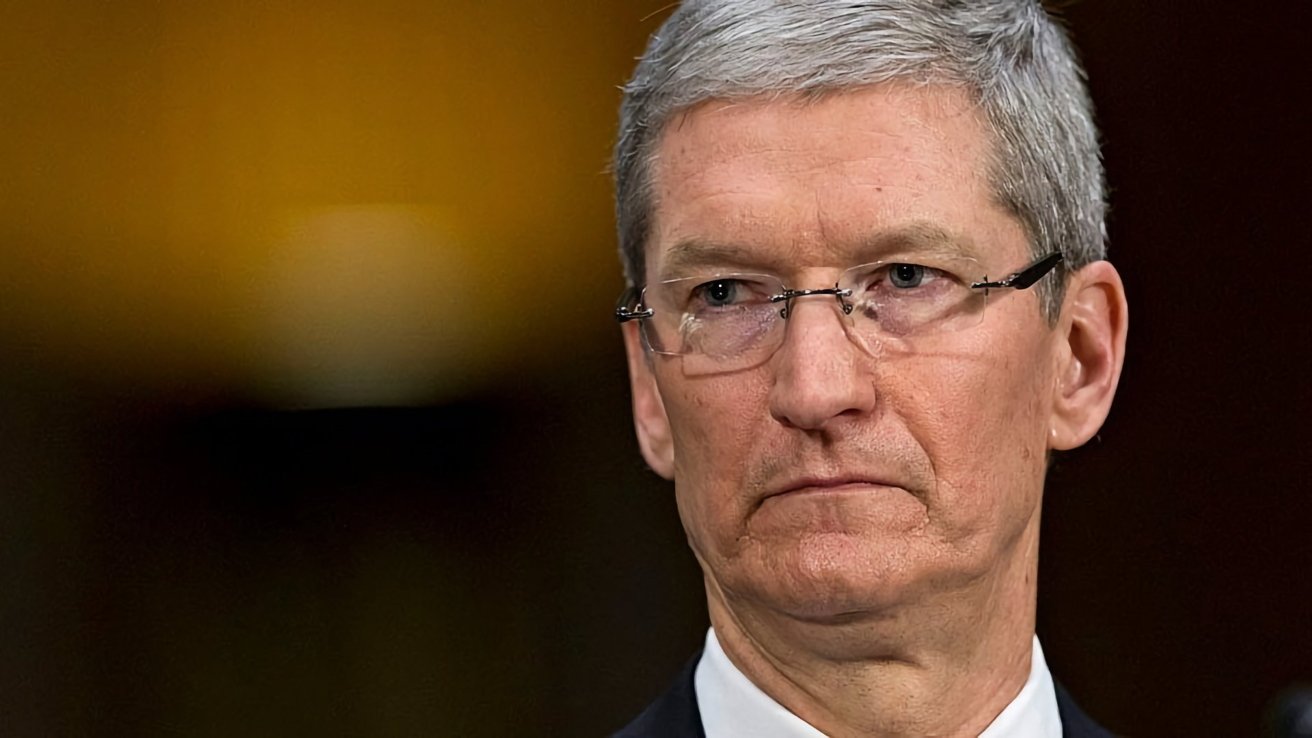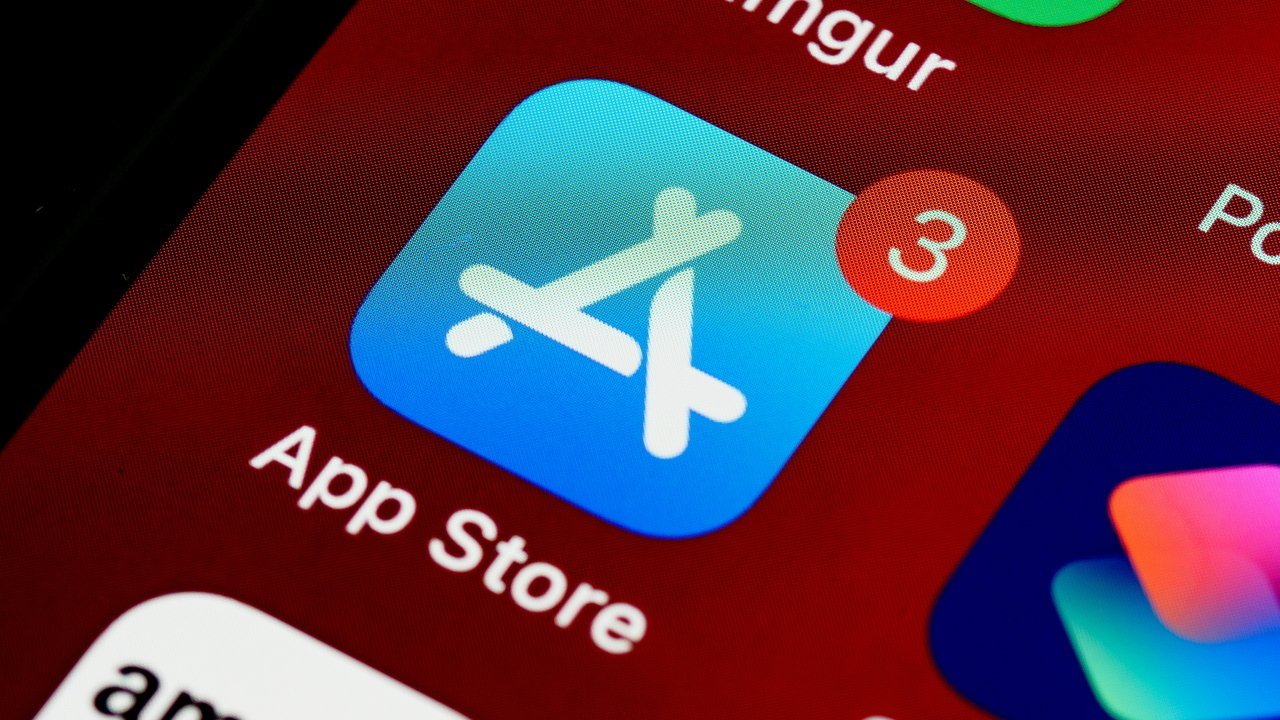Tim Cook tried to kill Texas App Store age verification bill by calling the governor
Apple CEO Tim Cook personally called Texas Governor Greg Abbott urging him to veto legislation requiring age verification for the App Store, escalating the tech industry's battle over child safety regulation.

Apple CEO Tim Cook
The bill, passed with veto-proof majorities, would require app store operators like Apple and Google to verify the age of every user. If the user is a minor, their account must be linked to a parent or guardian, who would then have to approve each app download -- a feature that Apple already provides.
The goal is to give parents more control over their children's online activity and to comply with the fact that minors can't legally consent to app terms, according to The Wall Street Journal.
The bill was sent to Abbott's desk on May 15, 2025, and is still awaiting his signature or veto. If signed, Texas would become the largest state to implement such a law. A similar measure in Utah has already passed and took effect May 7, 2025.
Apple says privacy is at risk
Apple has pushed back hard. Alongside Cook's personal outreach, the company has deployed six lobbyists in Texas and funded local advertising campaigns.
One Apple-backed ad claimed the bill was "backed by porn websites," a provocative message aimed at swaying public opinion in the Austin area.
Apple's main argument is that the bill would force it to collect and store sensitive personal data, like government IDs or other identifying information, from all users and not just children. That could expose Texans to new privacy risks, the company says, even when they're downloading basic apps like a weather forecast or sports scores.
It's a familiar pattern. Broad surveillance or data collection measures are often justified as necessary to protect children, even when they sweep in everyone's data and lower the bar for privacy across the board
Apple already offers tools like Ask to Buy, which gives parents control over what apps their kids download. If a child tries to get an app or make a purchase, the parent gets a notification and has to approve it before anything goes through.

Apple already offers tools like Ask to Buy
Safari has built-in content filters. Parents can block adult websites or allow specific ones, and Safe Search hides explicit results. These device-level controls, locked behind a Screen Time passcode, limit online content for families without a blanket age check across the App Store.
But, this has to be configured by the parent. And, the Screen Time password needs to be secured.
Meta, along with X and Snap, has supported bills like Texas's that shift the burden of age verification to app stores. They argue that verifying age at the app store level reduces the amount of sensitive information users provide to multiple apps.
Centralizing the process, the companies claim, could enhance both safety and privacy. Apple contends that this approach shifts too much responsibility onto app marketplaces and risks creating a honeypot of sensitive data that could be misused or targeted.
Part of broader state regulatory push
Utah's law and Texas's pending bill are part of a broader push by state legislatures to regulate tech companies in the absence of federal action. If Texas's law is enacted, it could become a model for similar efforts across the country, forcing Apple and Google to overhaul how their platforms handle underage users.
Cook has personally intervened in policy matters before, including lobbying on tariffs during the Trump administration and opposing anti-LGBTQ bills in Texas. His call to Abbott marks another example of Apple using its executive leadership to influence state legislation that could affect its business model and customer relationships.
Abbott's office says he is still reviewing the bill.
Read on AppleInsider

Comments
Liberty is not about the Government going into nanny mode. We already have offices setup (Child Protective Services) that are a layer of protection when it appears that parents may not be doing an acceptable job.
Most, if not all governments want to seen to do something about (put your angst in here) but they don't want to be responsible for the inevitable failures and cost, so it's a "who can we pass the buck to" game.
Nobody wants to be responsible for anything.
If you look at how other laws and legislation that is already in place try to prevent minors from accessing or consuming things that are deemed inappropriate for minors, for example alcohol, tobacco, driving privileges, etc., there is a government agency involved that provides a token of some sort that conveys eligibility to consume age-regulated products or activities. The onus is never on the retailer or seller to put in place any sort of private system to authorize access to the product or activity.
If I walk into a package store and attempt to purchase a bottle of vodka, the person selling the alcohol will ask me to provide a government issued form of identification. The liquor store owner isn't going to call my parents or ask me for a certified copy of my birth certificate. By virtue of having a state issued identity card like a drivers license or a federal government issued id like a passport, the store owner generally accepts that all of the age verification procedures have already taken place at the time the identity card, or token, was issued to me. Of course the store owner may have serious doubts about the validity of the identity token I present or believe for any nondiscriminatory reason that I am not the individual the token was issued to, I can be denied purchase of the alcohol.
If a state wants to enforce age-restricted authorization the state should put in place a system to ensure that all affected individuals are issued some form of verifiable token that ANY seller can take as proof of eligibility to access age-restricted material. This isn't an Apple specific problem. They should not be in the business of regulating who can access whatever in their store. Apple undoubtedly tries to filter out inappropriate apps, although they will eventually be sued for doing so, but there are so many ways and vehicles that people seeking something that is deemed unacceptable to find a way to obtain it.
Finally, Apple is not the morality police. They don't want to be and should not be asked to be the morality police. That's something parents have total control and responsibility over enforcing. Nobody should want their kids looking to a company, corporation, or government to provide moral guidance.
Do they have a clear cut procedure for companies to use to verify a person's age?
And how do you know if a minor is using the internet? And will the company be held accountable if they approved accounts based on false pretenses?
I'm confused on what else you think the government can get out of this that they already don't know about you.
I would love this to be true. Unfortunately kids can install any app if it's free (and within the age restrictions) or is a paid app one of the adults paid for and family sharing is on.
I don't understand why Apple can't implement a full control over the apps a kids can use... call it family MDM. The current implementation is borderline useless.
Thankfully Apple might actually preserve the child's privacy and security, but the law could force Apple to reveal data they would otherwise hide. And taking verification out of the hands of the platform vendors, like Meta, it means they can claim immunity from certain situations.
Listen to the experts. It's just not a good idea.
Of course it does. It's asking for information. Kids not ready to come out to their parents will avoid looking for answers and help because everything has to be viewed by their parents first. Don't say things like "providing more information doesn't invade anyone's privacy"
Controls exist for parents to lock their children out of downloading inappropriate content on Apple iPhones, iPads and Macs. And for parents too lazy or illiterate to read how to do it, there are YouTube videos to walk you through the process. If parents are too lazy to do either one, how concerned are they really about what their children download? Apple gave you the necessary controls to exercise your responsibility as a parent in the way you see fit--it's not their problem if you choose not to use them.